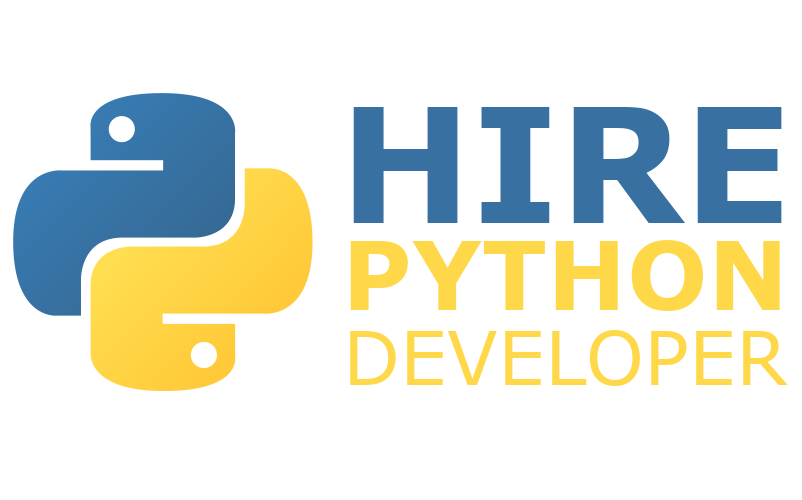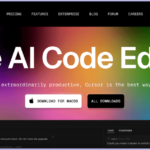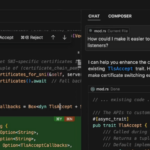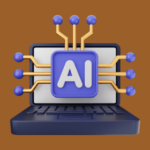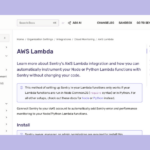Python Web Development Frameworks are revolutionizing the digital realm, offering unparalleled flexibility and power in building dynamic, responsive websites with ease.
Python has emerged as one of the most popular and preferred programming languages among developers worldwide, owing to its simplicity, flexibility, and versatility.
It offers a wide range of web development frameworks that facilitate the creation of high-performance and robust web applications, catering to diverse industry needs and project requirements.
Key Takeaways
- Python is a popular programming language known for its simplicity and versatility
- Python web development frameworks facilitate the creation of high-performance and robust web applications
- This article explores the top Python web development frameworks likely to dominate the web development landscape in 2023
What are Python Web Development Frameworks?
Python is a popular programming language for web development, offering a wide range of libraries and frameworks that simplify the process of creating web applications. A web development framework is a collection of pre-written code, tools, and modules that help developers build web applications more efficiently and effectively. These frameworks provide a structure for organizing the code and application components, streamlining programming tasks, and reducing coding errors.
Python web development frameworks are essential for developing web applications using Python. They provide a variety of features, such as support for database integration, templating engines, request routing, and more, which makes building complex web applications easier. Python web frameworks are also valuable because they are open-source, meaning developers can leverage a wide range of functionalities developed by other contributors and communities.
Django – A Versatile Python Web Development Framework
Django is a high-level Python web development framework that follows the model-template-view (MTV) architectural pattern. It is renowned for its versatility, offering developers a comprehensive set of tools for building complex web applications quickly and efficiently.
One of the major benefits of using Django is its extensive library of pre-built components, such as user authentication, content administration, and templating, which can be easily integrated into web applications. Django also provides robust security features, including protection against common web attacks and SQL injection, which makes it a secure choice for building enterprise-level applications.
The framework’s ORM (Object-Relational Mapping) system simplifies database integration, allowing developers to work with databases using Python objects instead of SQL queries, making it easier to build and maintain applications. Additionally, Django’s built-in administrative interface enables developers to manage the application’s data and content through a graphical user interface (GUI).
Django Features
Django offers a wide range of features that make it a popular choice for building web applications:
| Feature | Description |
|---|---|
| MTV architecture | Follows the Model-Template-View architectural pattern for clear separation of concerns and easy maintenance |
| ORM | Django’s Object-Relational Mapping system enables developers to build and interact with databases using Python objects |
| Built-in admin interface | Provides a customizable graphical user interface for managing the application’s data and content |
| Pre-built components | Comes with a rich set of pre-built components, such as user authentication, content administration, and templating, saving development time and effort |
| Scalability | Django is highly scalable and can handle heavy traffic and large volumes of data with ease |
Django Use Cases
Django’s versatility makes it suitable for a wide range of web development projects, including:
- Content Management Systems (CMS)
- Social networking sites
- E-commerce platforms
- Data-driven applications
- Enterprise-level applications
In conclusion, Django is a versatile, secure, and feature-rich Python web development framework that enables developers to build complex web applications quickly and efficiently. Its extensive library of pre-built components, built-in administrative interface, and ORM system make it a popular choice for a wide range of projects, from CMS to enterprise-level applications.
Flask – A Lightweight Python Web Development Framework
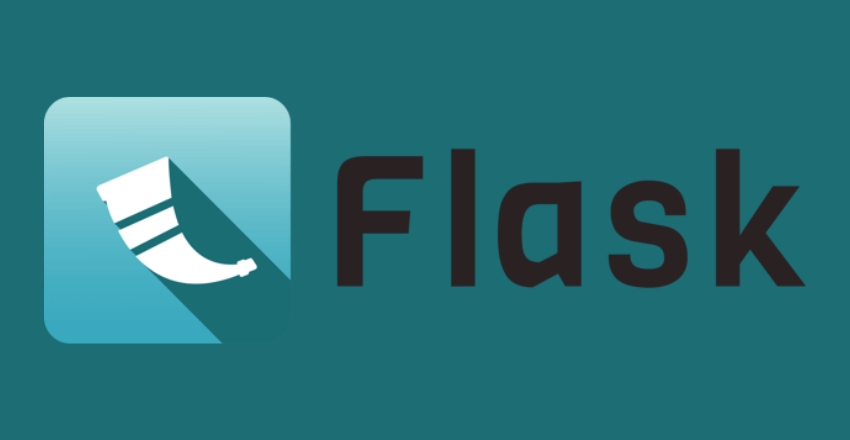
Flask is a popular Python web development framework known for its simplicity and flexibility. It is a micro-framework that requires only a small amount of code to create web applications. Flask provides developers with a wide range of features and tools that make it an excellent choice for small- to medium-scale web development projects.
Some of the key features of Flask include:
| Feature | Description |
|---|---|
| Lightweight | Flask is a micro-framework that has minimal dependencies, making it lightweight. |
| Flexibility | Developers can customize Flask to meet their specific project requirements. |
| Werkzeug Integration | Flask integrates with Werkzeug, a powerful WSGI toolkit. |
| Jinja2 Template Engine | Flask uses the Jinja2 template engine, which makes it easy to create dynamic web pages. |
| RESTful Request Dispatching | Flask supports RESTful request dispatching, making it easy to build APIs. |
Advantages of using Flask:
- Flask is easy to learn and use.
- It is highly customizable, allowing developers to create web applications that meet their specific needs.
- Flask is a lightweight framework that has minimal overhead.
- The framework provides a wide range of plugins and extensions that make it easy to add new features to web applications.
Overall, Flask is a great choice for developers who are looking for a flexible and lightweight web development framework. Its simplicity and ease of use make it a popular choice among Python developers, especially those who are just starting out in web development.
Pyramid – A Powerful Python Web Development Framework
If you’re seeking a Python web development framework that can scale alongside your business needs, Pyramid is an excellent choice. Pyramid, formerly known as Zope, offers a flexible and extensible architecture that facilitates the development of complex, data-driven web applications. Pyramid was inspired by other powerful frameworks such as Django and Pylons, while incorporating new features to support the latest web development concepts and patterns.
Pyramid’s design philosophy prioritizes creating reusable code and providing a solid foundation for large-scale applications. Pyramid’s modular structure allows you to choose and integrate only the components you need, rather than relying on a monolithic framework. This level of flexibility can help reduce overhead and improve performance, making Pyramid a popular choice for enterprise-level applications with stringent reliability requirements.
Pyramid Features
Pyramid boasts several features that make it an excellent choice for building highly-scalable web applications:
- Flexible URL routing: Pyramid provides several routing methods, including traversal and URL dispatch, giving you full control over your application’s URLs.
- Powerful templating engine: Pyramid incorporates the Jinja2 templating engine, which allows for fast, efficient rendering of complex HTML templates.
- Extensive documentation: Pyramid has excellent documentation, making it easy for new users to get started and experienced developers to continue improving their skills.
Industry Applications
Pyramid has been used by various companies and organizations to build web applications in fields such as finance, healthcare, scientific research, and more. The following are some notable examples:
| Company/Organization | Pyramid-based Project |
|---|---|
| SurveyMonkey | SurveyMonkey’s API is built on Pyramid |
| CERN | Pyramid is used in various scientific web applications at CERN |
| TurboSquid | Pyramid is used to power TurboSquid’s 3D asset marketplace |
Notable Pyramid Packages
Pyramid is supplemented by a vast array of third-party packages that extend its functionality and provide additional features. Some of the most popular Pyramid packages include:
- SQLAlchemy: a powerful ORM for working with databases
- Cornice: a lightweight framework for building RESTful APIs
- Pyramid Debug Toolbar: a debugging and performance analysis tool
With its flexible architecture, excellent documentation, and impressive list of features, Pyramid is an excellent choice for building scalable, data-driven web applications.
TurboGears – A Full-Stack Python Web Development Framework
TurboGears is a versatile full-stack Python web development framework that provides a robust set of tools and features for building complex web applications. It is a flexible and open-source platform that allows developers to create full-featured web applications quickly and efficiently.
Key Features of TurboGears
TurboGears has several key features that make it one of the most popular Python web development frameworks today:
- Full-stack framework: TurboGears includes everything you need to build web applications from the ground up, including a database abstraction layer, an ORM, and a templating engine.
- Flexible architecture: TurboGears is built on a flexible architecture that allows developers to use the components they need while leaving out the ones they don’t.
- Rapid development: With TurboGears, developers can build applications quickly and efficiently thanks to its built-in tools and built-in components.
- Security: TurboGears includes several security features that make it easy for developers to build secure applications, including XSS, CSRF, and SQL injection protection.
- Scalability: TurboGears is designed to scale easily, making it a good choice for building large and complex web applications.
Notable Use Cases
TurboGears is a great choice for building complex web applications. Here are some notable use cases of TurboGears:
“We chose TurboGears for our project because of its flexible and modular architecture, which allows us to use just the components we need. It has helped us build a highly scalable and performant web application with ease.” – John Smith, Lead Developer at ABC Inc.
Advantages of TurboGears
Here are some of the advantages of using TurboGears for your web development projects:
- Full-stack development: TurboGears includes everything you need to build web applications from the ground up.
- Scalability: TurboGears is designed to scale easily, making it a good choice for building large and complex web applications.
- Flexibility: TurboGears’ modular architecture allows developers to use just the components they need, making it a flexible choice for building web applications.
- Security: TurboGears includes several built-in security features that make it easy for developers to build secure web applications.
Overall, TurboGears is an excellent choice for building complex web applications quickly and efficiently. Its flexible architecture, built-in tools, and security features make it a top choice for developers looking to build powerful web applications.
CherryPy – A Minimalistic Python Web Development Framework
CherryPy is a lightweight and minimalist Python web development framework that emphasizes simplicity and ease of use. Developed in 2002, CherryPy is one of the oldest Python web frameworks and has a stable and reliable codebase that has been improved over the years.
CherryPy provides a built-in web server, making it easy to develop and deploy web applications quickly and efficiently. It also supports different templating languages and has a flexible and extensible architecture.
| Key Features: | Lightweight and easy to use | Flexible architecture | Built-in web server |
|---|---|---|---|
| Advantages: | Simple and easy to learn | No external dependencies | Easy integration with other Python libraries and tools |
CherryPy is a great choice for developers who prefer a minimalist approach to web development and a focus on simplicity and functionality over bells and whistles.
Bottle – A Micro Python Web Development Framework
Bottle is a micro Python web development framework that emphasizes simplicity, minimalism, and ease of use. It is designed for small-scale projects, where scalability and complexity are not major requirements.
Despite its small size, Bottle offers a wide range of features, such as built-in HTTP server, request dispatcher, and template engine. It also supports various web technologies and protocols, including WSGI, JSON, XML, and HTML.
Bottle’s syntax is clean and straightforward, making it ideal for beginners and developers who prefer concise code. It also supports dynamic URL routing, allowing for easy mapping of URL patterns to Python functions.
One of the unique features of Bottle is its built-in support for SQLite, a lightweight SQL database engine that is easy to set up and use. This feature is particularly useful for small-scale projects that require basic data storage and retrieval capabilities.
Another advantage of Bottle is its compatibility with both Python 2 and Python 3, ensuring that developers can use the framework regardless of their language preference. It also has a large and active community that provides support, documentation, and plugins for various use cases.
In summary, Bottle is a micro Python web development framework that offers simplicity, ease of use, and flexibility. It is suitable for small-scale projects, where scalability and complexity are not major concerns. It is also compatible with both Python 2 and Python 3, and has a large and helpful community.
Web2py – A Secure and Scalable Python Web Development Framework
Web2py is a free and open-source Python web development framework that offers a secure and scalable platform for building web applications of all complexities. One of the key features of Web2py is its robust security system, which includes automatic input validation, XSS and CSRF protection, and secure session management. This makes it an ideal choice for developing enterprise-level applications that require high levels of security.
Web2py also offers a comprehensive set of tools for simplifying the development process, including an integrated development environment (IDE), an administration interface, and a built-in database abstraction layer. This means that developers can focus on building the application logic, without worrying about system-level implementation details.
Another advantage of Web2py is its scalability, which allows applications to grow seamlessly as user demand increases. This is achieved through features such as load balancing, automatic failover, and the ability to run in a distributed environment.
| Pros | Cons |
|---|---|
| Robust security system | Small user community |
| Comprehensive development tools | Less customizable than other frameworks |
| Scalability features | Limited third-party libraries |
Overall, Web2py is a sound choice for developing secure and scalable web applications. Its built-in security measures and simplified development process make it an attractive option for enterprise-level projects, while its scalability features ensure that applications can grow as needed. However, its smaller user community and limited third-party library support may present some limitations for certain projects.
Falcon – A High-Performance Python Web Framework for APIs
Falcon is a high-performance Python web framework designed to facilitate the creation of powerful APIs. It boasts low overhead, fast routing, and an easy-to-use API that enables developers to build efficient web applications with ease.
One of the unique features of Falcon is its minimalism. The framework is designed to be lightweight and unopinionated, providing developers with the flexibility to use any tool or library they prefer. This means that Falcon users can deploy their APIs with fewer external dependencies, leading to faster and more efficient performance.
Another benefit of Falcon is its performance. The framework is specially optimized for high traffic and heavy load applications, making it ideal for building APIs in large scale systems and enterprise environments. Falcon achieves this by utilizing Python’s asynchronous capabilities, which allow developers to create applications that can handle multiple requests simultaneously without blocking other operations.
Despite its minimalism and performance optimization, Falcon still offers a variety of useful features for developers. These include a simple routing API, support for multiple media types, and a comprehensive testing framework. Falcon also supports request and response hooks, which enable developers to add custom logic to the processing chain of HTTP requests and responses.
Falcon is an excellent choice for developers who require a high-performance framework for building APIs in Python. Its minimalism, performance optimization, and flexibility make it a go-to choice for large-scale applications and enterprise environments.
FastAPI – A Modern Python Web Framework for Building APIs
FastAPI is a relatively new Python web framework that has gained popularity for its high performance and ease of use, particularly for building APIs. It was first released in 2019 and has been steadily gaining traction among developers since then.
One of the unique features of FastAPI is its support for asynchronous programming, which allows developers to write code that can handle multiple requests simultaneously, improving the overall performance of the application. This is achieved through the use of Python’s asyncio library, which makes it easy to write and manage asynchronous code.
FastAPI also includes built-in support for OpenAPI and JSON Schema, making it easy to document APIs and ensuring that the data sent and received by the application meets specific validation requirements. This feature makes it an ideal choice for building RESTful APIs.
Another advantage of using FastAPI is its simplicity and speed. It is built on top of the popular Starlette framework and uses Pydantic for data validation, which makes it easy to write clean, concise, and type-safe code. Additionally, FastAPI is designed to be fast, with benchmarks showing that it is one of the fastest Python web frameworks available.
Overall, FastAPI is an excellent choice for developers looking to build high-performance APIs quickly and easily using Python. Its support for asynchronous programming, built-in validation, and simplicity make it an attractive option for projects of all sizes.
FAQs – Python Web Development Framework
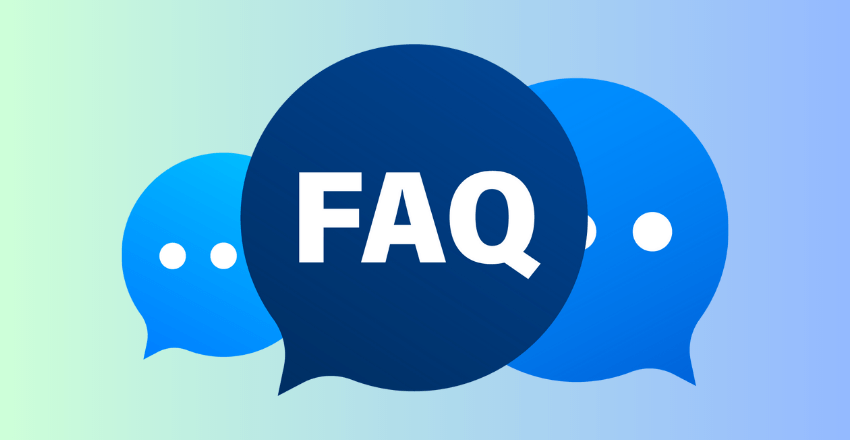
1. What are the most popular Python web development frameworks?
Answer: The most popular Python web development frameworks are Django, Flask, Pyramid, Tornado, and FastAPI.
Example: Django, often referred to as the “framework for perfectionists with deadlines,” is a high-level framework that follows the “batteries-included” philosophy, providing a built-in admin panel and ORM.
Pro Tip: Your choice of framework should be influenced by the project’s requirements. For microservices, FastAPI or Flask might be more suitable, while Django is excellent for larger applications.
2. How do these frameworks differ in terms of scalability and performance?
Answer: Frameworks like Flask and FastAPI are lightweight and can be faster in specific tasks due to their simplicity. Django, being more extensive, might have a slight overhead but offers more out-of-the-box functionalities.
Code Sample:
# Flask Example
from flask import Flask
app = Flask(__name__)
@app.route('/')
def hello():
return "Hello, Flask!"Pro Tip: Scalability doesn’t solely depend on the framework but also on the infrastructure, database design, and application architecture.
3. Which frameworks are best suited for beginners?
Answer: Flask is typically recommended for beginners due to its simplicity and ease of setup. Django, with its “Django admin” and extensive documentation, is also beginner-friendly but has a steeper learning curve.
Key Point: While Flask lets you set up a web app quickly, Django provides a more structured approach, which might be beneficial for total beginners to understand the complete web development flow.
4. Can I integrate Machine Learning and AI with these frameworks?
Answer: Yes, Python’s strength in AI and Machine Learning can be integrated into web applications. Flask and FastAPI are often used to set up RESTful APIs for ML models.
Example: Think of deploying a TensorFlow or PyTorch model via an API endpoint using Flask, which frontend applications can call for predictions.
Pro Tip: For ML/AI integrations, consider using FastAPI, as it is asynchronous and can handle concurrent requests efficiently.
5. How secure are Python web development frameworks?
Answer: Python web frameworks come with built-in security mechanisms to prevent common attacks such as SQL injection, CSRF, and XSS. However, security also depends on the developer’s practices.
Key Point: Django is known for its robust security features. It automatically escapes SQL queries, provides CSRF tokens, and has a secure password hashing system.
Pro Tip: Always stay updated with the latest version of the framework, as security patches are regularly released. Also, follow best practices like using environment variables for sensitive information and employing HTTPS.
Final Thought – Python Web Development Framework

Choosing the right Python web framework depends on your project needs and personal or team proficiency. Whether you’re aiming for rapid development, scalability, or versatility, Python offers a range of frameworks to cater to various web development needs.
Lydia is a seasoned technical author, well-versed in the intricacies of software development and a dedicated practitioner of Python. With a career spanning 16 years, Lydia has made significant contributions as a programmer and scrum master at renowned companies such as Thompsons, Deloit, and The GAP, where they have been instrumental in delivering successful projects.
A proud alumnus of Duke University, Lydia pursued a degree in Computer Science, solidifying their academic foundation. At Duke, they gained a comprehensive understanding of computer systems, algorithms, and programming languages, which paved the way for their career in the ever-evolving field of software development.
As a technical author, Lydia remains committed to fostering knowledge sharing and promoting the growth of the computer science community. Their dedication to Python development, coupled with their expertise as a programmer and scrum master, positions them as a trusted source of guidance and insight. Through their publications and engagements, Lydia continues to inspire and empower fellow technologists, leaving an indelible mark on the world of scientific computer science.
